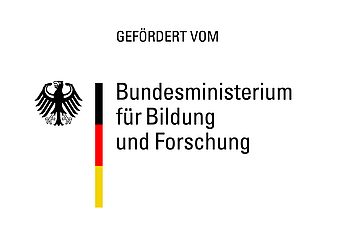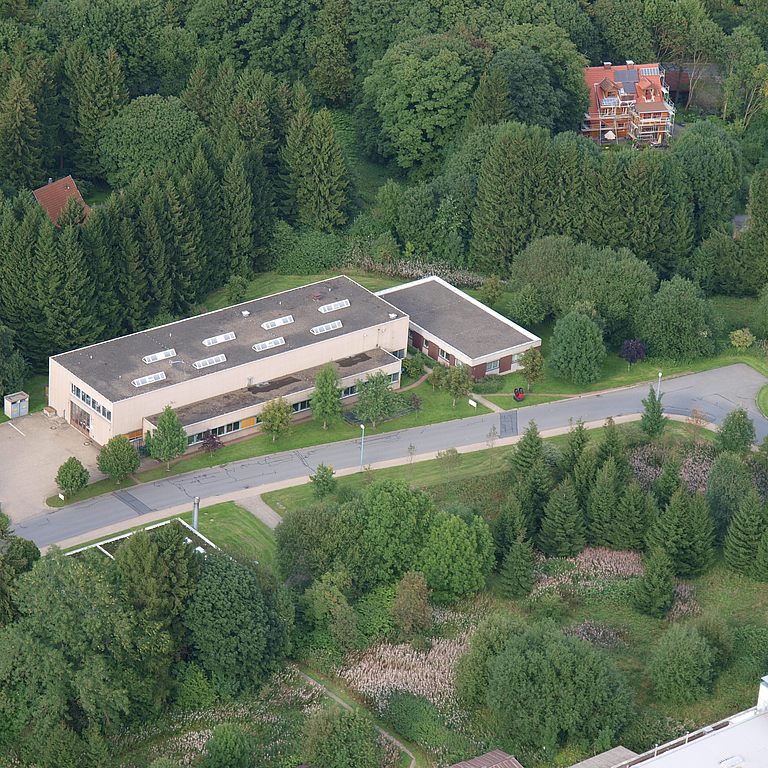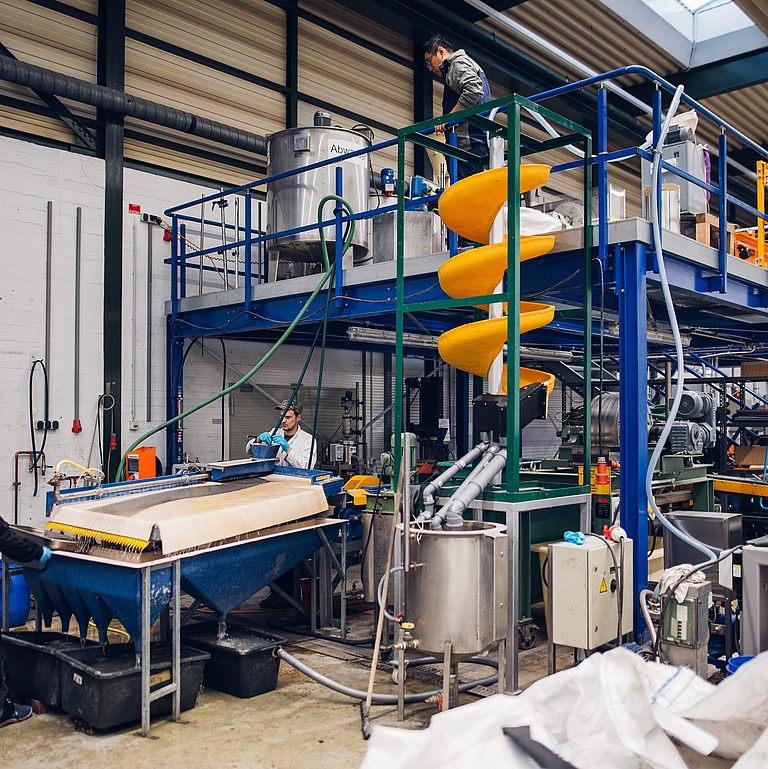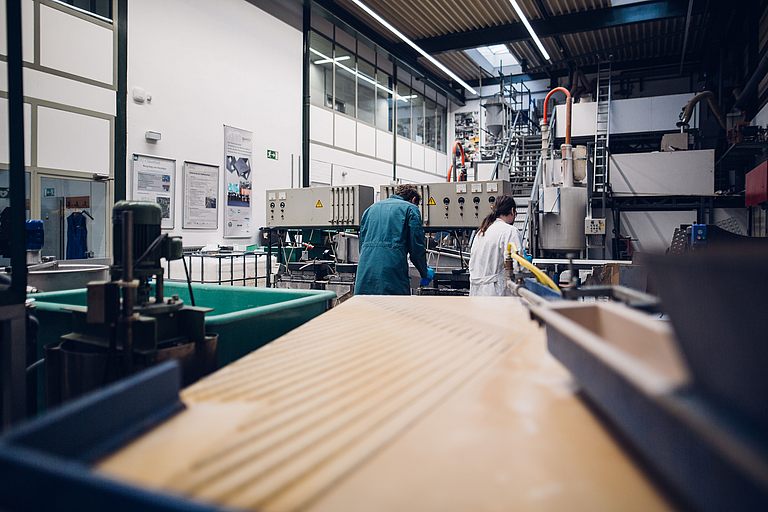REWITA
REWITA - Recycling of mining processing residues for the extraction of economically strategic metals using the example of tailings at the Bollrich in Goslar
Project description
The REWITA project investigates the recovery and processing of mining residues against the background of newly identified potential for recyclable materials and the problems of environmental pollution and aftercare costs. In addition to bulk metals, the focus here is particularly on the economically strategic metals indium, gallium and cobalt.
In recent years, politics and the economy have been sensitized to the strategic importance and partial scarcity of certain elements. Examples are the elements indium, gallium and cobalt, which are essential for a wide range of products. Examples are screen production (indium), photovoltaic systems (indium/gallium), light-emitting diodes (gallium) and battery and alloy production (cobalt). With regard to these elements, Germany is currently almost completely dependent on imports. In view of the high importance of these elements for the manufacturing industry, the exploitation of local deposits represents a major contribution to securing Germany's position as a high-tech location.
Mining, processing and smelting residues can be found all over the world and represent a major environmental burden. However, these residues often still contain significant amounts of recyclable materials, so that the remediation of these objects can bring great economic benefits. These recyclable materials were either not target elements at the time of production or could not be recovered due to the technology used. Although there are already approaches for many residues, the development is still in its infancy, especially in the treatment of tailings ponds (collected flotation effluents).
In the REWITA project, all these developments and tendencies now come together, which is why there is a great deal of public interest. Using the example of the tailings ponds of the former Rammelsberg mine in Goslar, the project consortium will develop a process that will minimise the environmental impact and the costs of aftercare of the tailings ponds and will enable the extraction of the remaining valuable materials. The focus is on the above mentioned economically critical metals. The necessary planning steps include the analysis and modelling of the anthropogenic storage cities, a more detailed investigation of the recyclable materials, the elaboration of a processing and hydrometallurgy route as well as an ecological, social and economic consideration of the endeavours. The project gains particular depth due to the nature of the material, as there is little knowledge of the physical and chemical changes of the overburden over the period of deposition.
The Institute for Processing, Landfill Engineering and Geomechanics is responsible for the investigation of processing and hydrometallurgy within the project. In doing so, the mass-relevant recyclables (especially barite) will be considered as well as the economically strategic metals indium, gallium and cobalt. Furthermore, significant amounts of silver and zinc (as carriers of the strategic metals) are expected.
Network partners
- Clausthaler Environmental Technology Institute GmbH (CUTEC)
- PPM Pure Metals GmbH (PPM)
- Harz-Metal GmbH (HMG)
- Stöbich Holding GmbH & Co.KG, (STÖBICH)
- pdv software GmbH (PDV)
- Prof. Burmeier Engineering Company mbH (BIG)
- Bergbau Goslar GmbH (BBG, associated partner)
- Clausthal University of Technology (TUC):
- Institute for Mining (IBB)
- Institute for Repository Research (IELF)
- Institute for Processing, Landfill Engineering and Geomechanics (IFAD)
- Institute for Geotechnics and Mine Surveying (IGMC)

Subsidy reference number: 033R136G



![[Translate to English:] [Translate to English:]](/fileadmin/_processed_/0/e/csm_duesenfeld_jun18_098_lowres_dd33377237.jpg)
![[Translate to English:] [Translate to English:]](/fileadmin/_processed_/d/3/csm_duesenfeld_jun18_108_lowres_31e25a0a0c.jpg)
![[Translate to English:] [Translate to English:]](/fileadmin/_processed_/3/0/csm_PA8A0066_25a6616405.jpg)
![[Translate to English:] [Translate to English:]](/fileadmin/_processed_/c/d/csm_PA8A6326_b23db2d7fe.jpg)
![[Translate to English:] [Translate to English:]](/fileadmin/_processed_/8/2/csm_PA8A6373_333262f3c8.jpg)
![[Translate to English:] [Translate to English:]](/fileadmin/_processed_/7/f/csm_PA8A9524_5b4d7e23a0.jpg)
![[Translate to English:] [Translate to English:]](/fileadmin/_processed_/3/3/csm_PA8A9545_bd53136455.jpg)
![[Translate to English:] [Translate to English:]](/fileadmin/_processed_/8/d/csm_PA8A9673_2c9b95d9b4.jpg)